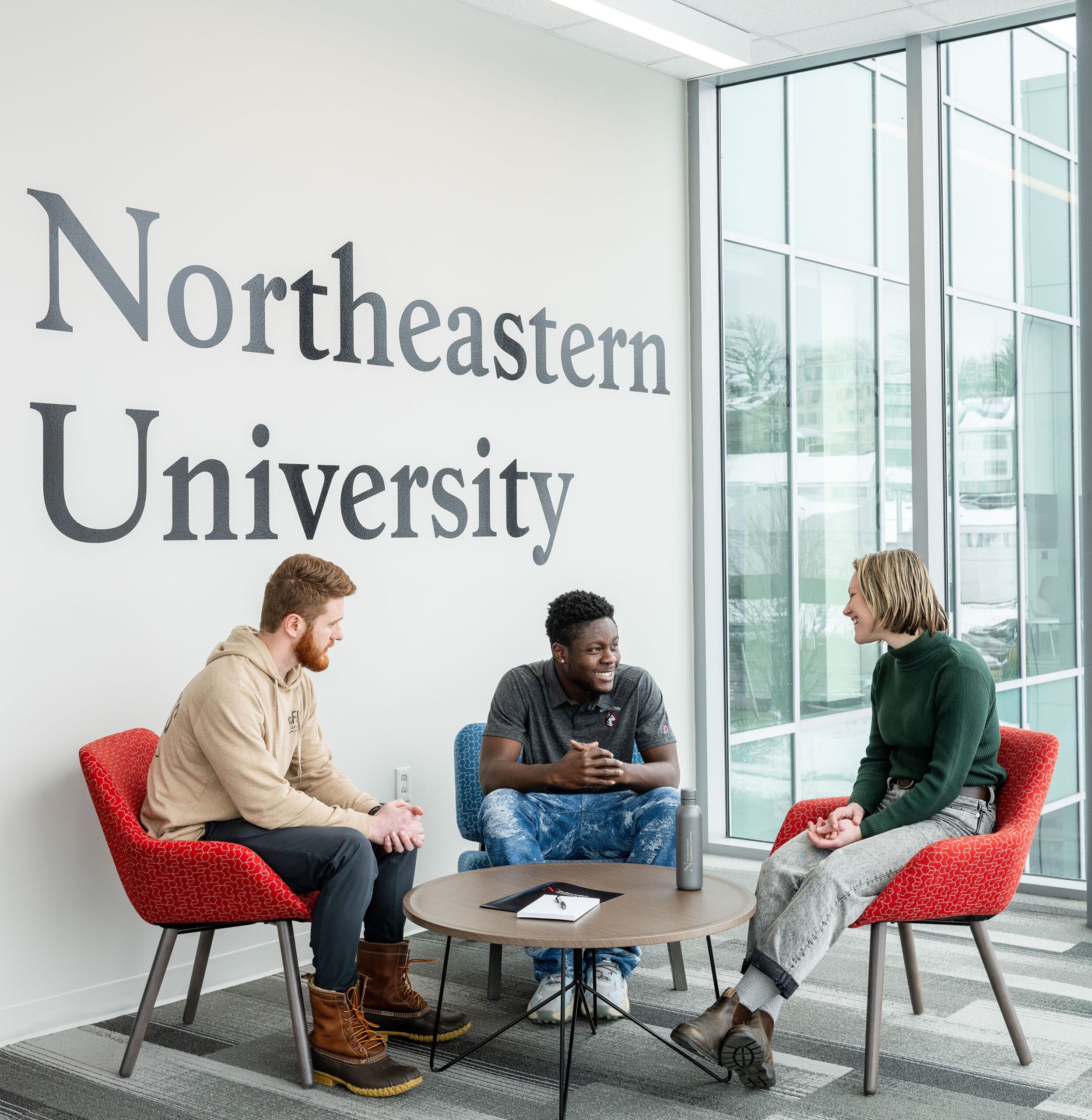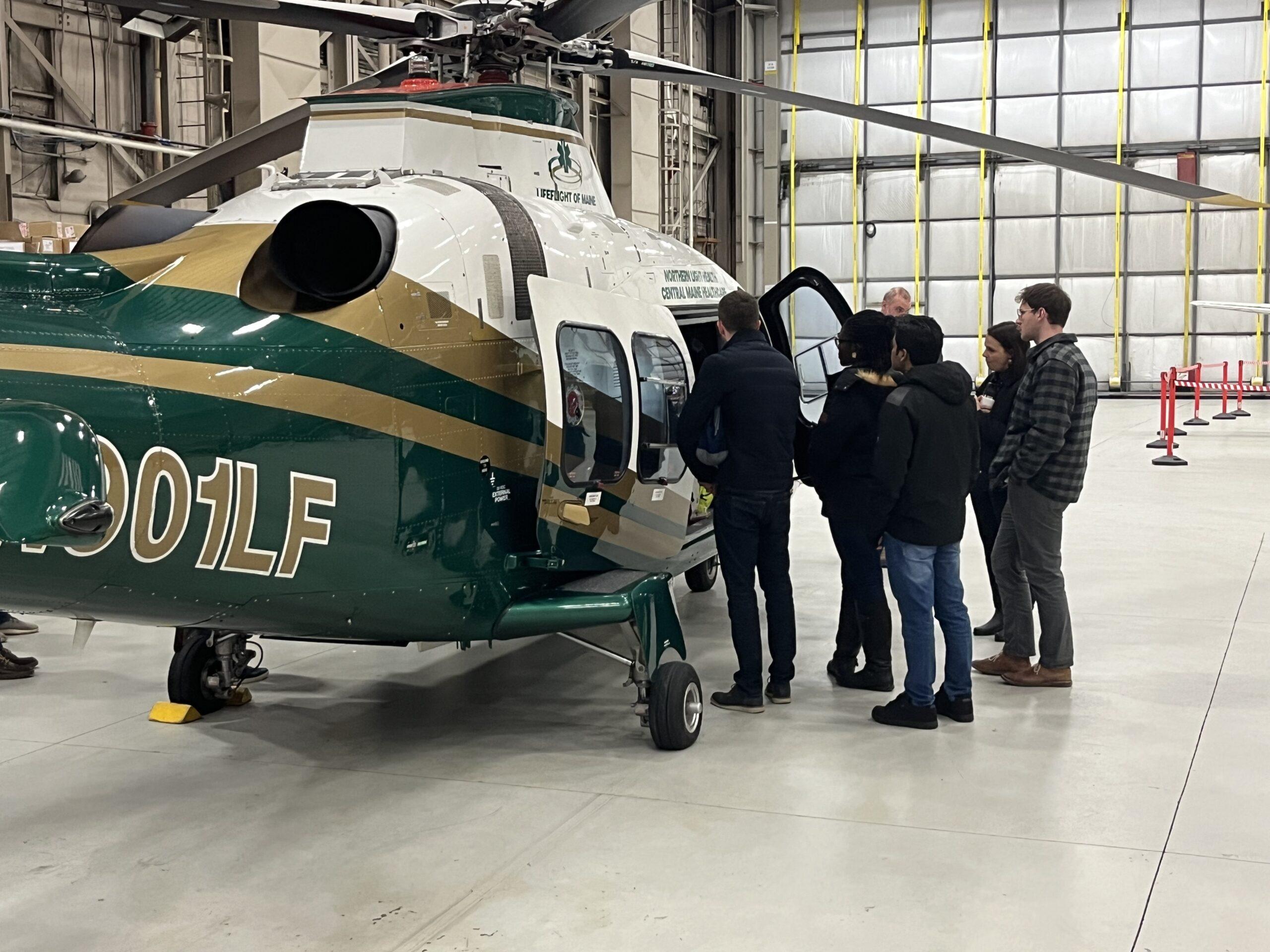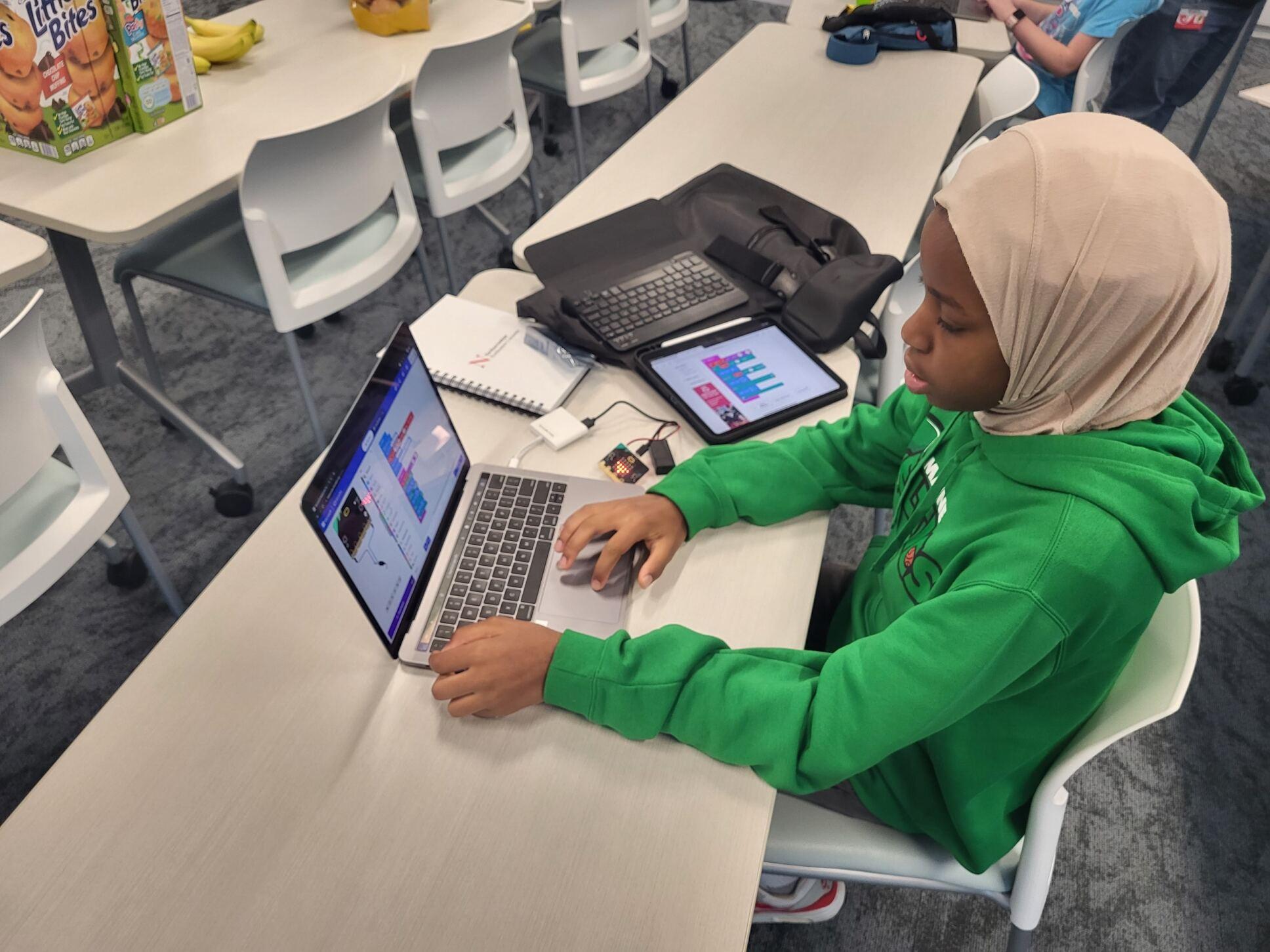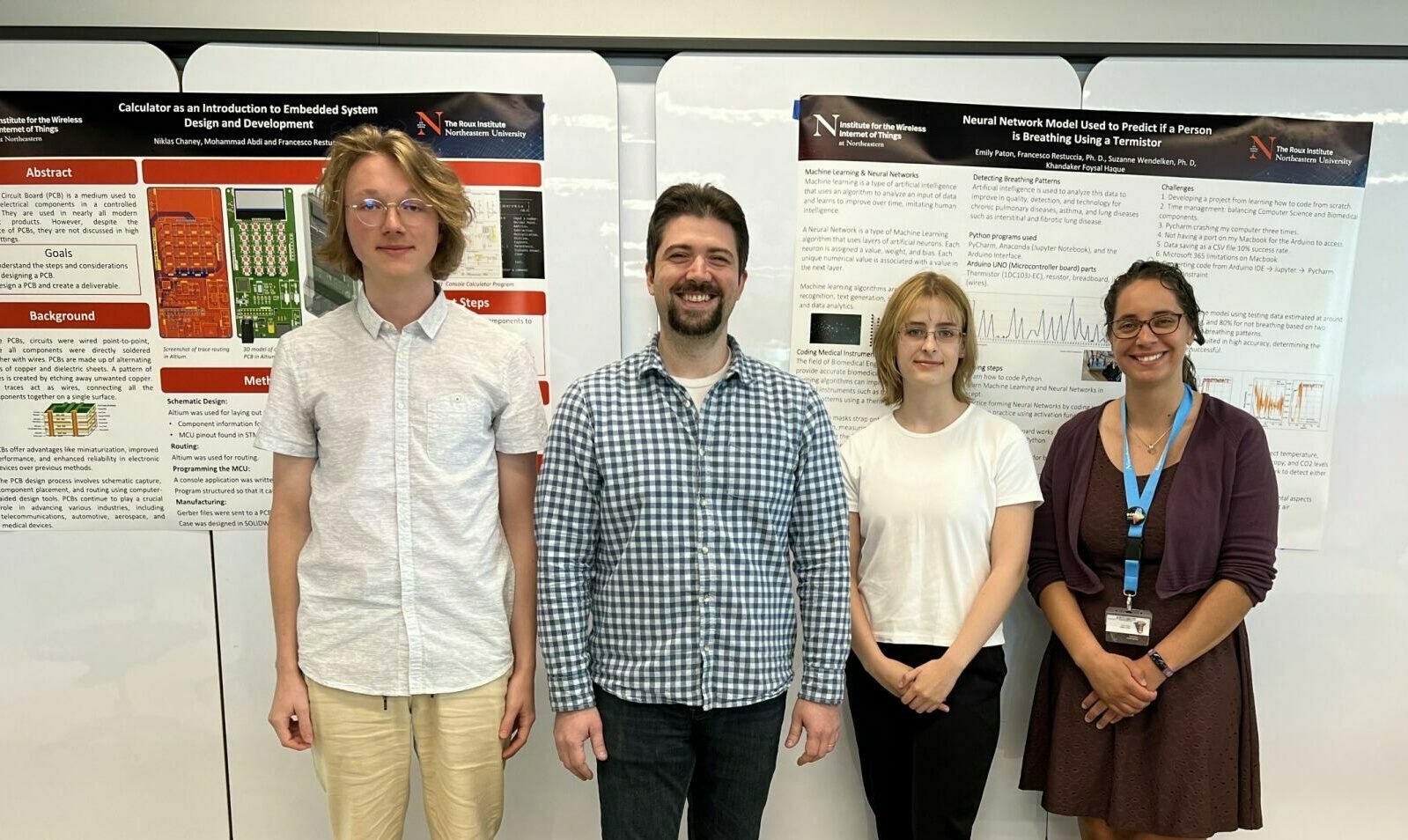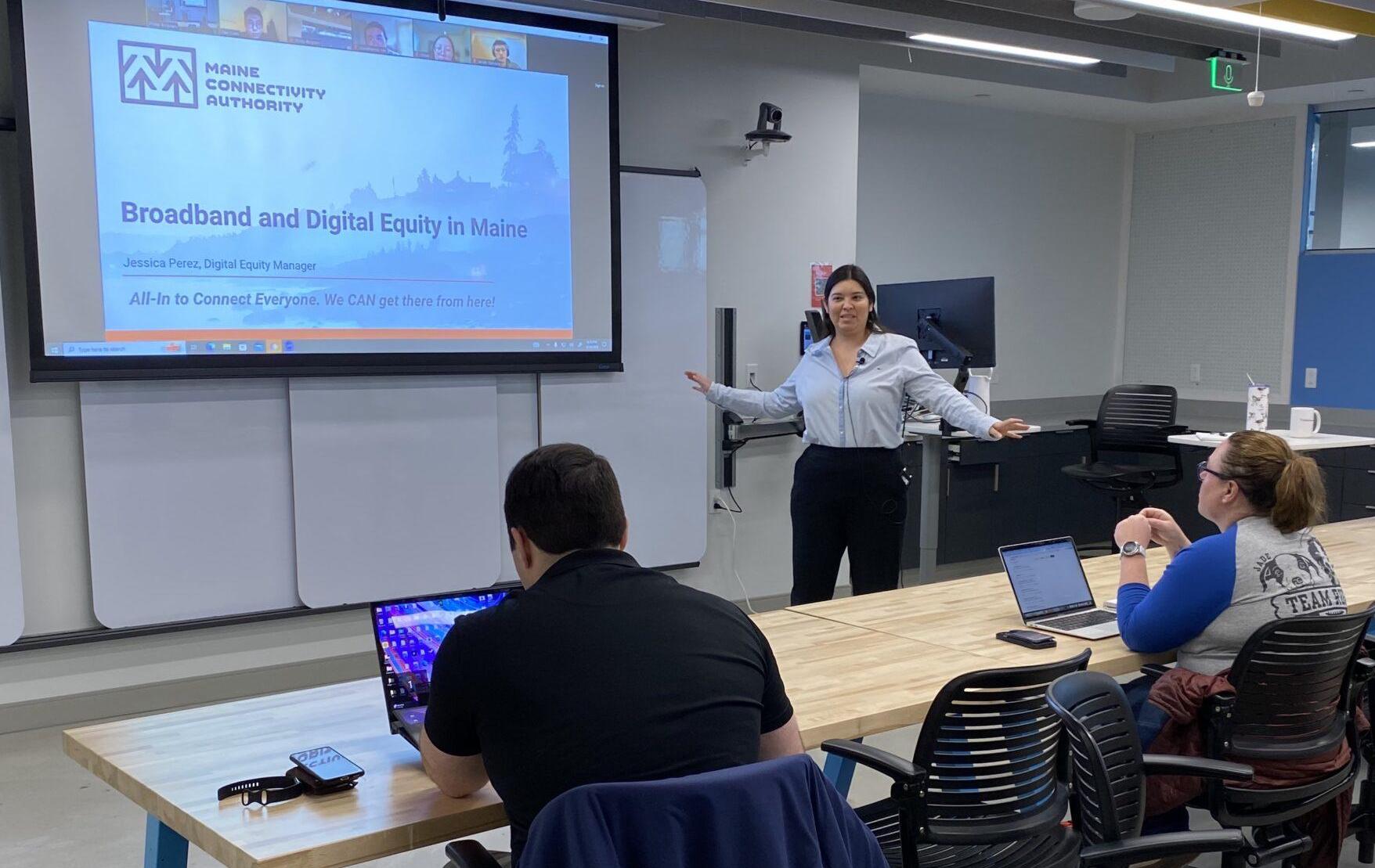
Roux data science students program interactive tools for the Maine Connectivity Authority
As the most rural state in the country, Maine faces unique challenges. While it boasts access to pristine coastal waters and serene mountain vistas, many Mainers still lack access to something critical: reliable internet.
The issue is so persistent that last year, the Biden administration sent $272 million to Maine in an effort to expand high-speed internet in the state. The Maine Connectivity Authority (MCA), a quasi-governmental agency that is funded at both the state and federal level, dedicates its mission to making internet affordable, reliable, and sustainable for all Maine residents.
The MCA’s mission-based, Maine-based work made for a perfect partnership with a class of hungry data science students in Maine, looking to put their skills and knowledge to the test.
This spring, the MCA partnered with Northeastern University’s Roux Institute, giving graduate students in an Intro to Programming for Data Science class a chance to make a real impact. The course is led by Philip Bogden, an associate professor of computer science specializing in data visualization, data science, artificial intelligence, and machine learning. Professor Bogden initiated a partnership with MCA a couple of years ago, and they have collaborated multiple times, utilizing real data to tackle challenges and amplify the organization’s impact.
In this latest collaboration, the class worked with Jessica Perez, MCA’s digital equity manager. Perez tasked the students with creating visualizations that would help identify their target populations. She was imagining an interactive tool that would allow her team to better understand where digital equity needs were highest and where MCA could make the greatest impact.
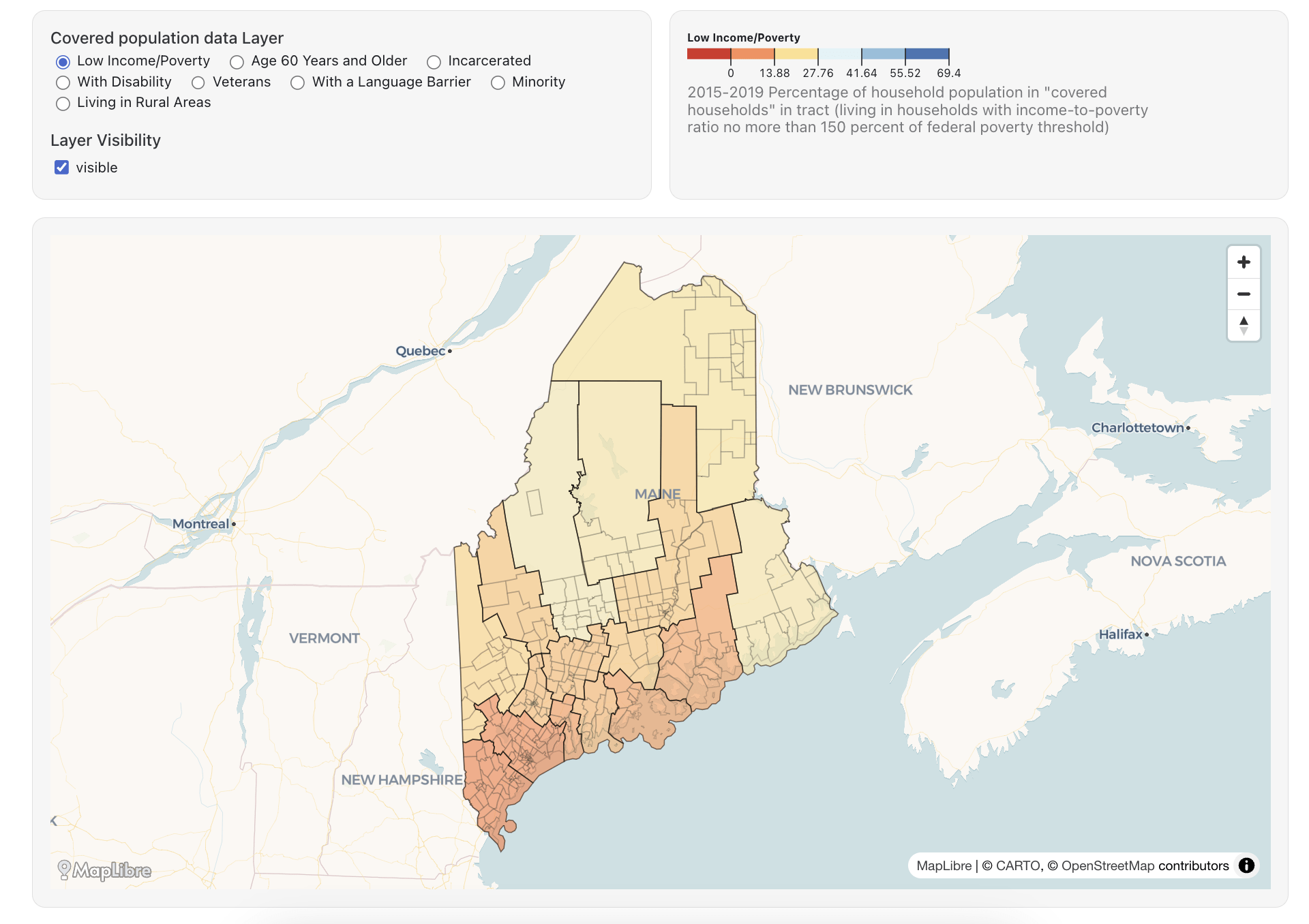
“For instance,” Perez explained, “one of the populations we serve is people with disabilities. We wanted to be able to look at a map and say, okay, Piscataquis County has the highest rate of people with disabilities; we need to implement digital equity services there that are designed with that population in mind.”
Under Professor Bogden’s leadership, the class got to work. Using data from the MCA, the U.S. Census, and the FCC, they collaborated on the programming platform GitHub, preparing data and writing code to create an interactive map. The map allows MCA to click into different towns and counties in Maine to access data such as total population, number of veterans, people living with disabilities, rural population size, poverty levels, and other crucial factors MCA use to make programming and service decisions.
Perez noted the map’s potential impact at MCA. “We’re working on an application for a federal grant in which we need to articulate how we’re going to assess and measure our work. This tool could be really helpful in that,” she said.
Professor Bogden says MCA is a “perfect partner” for the Roux Institute.
“When you get a stakeholder who is so psyched to work with students, that’s contagious. The students light up,” he said. “MCA is a great partner because they have a story they want to tell, data to tell that story, and excitement to engage with students to help define and iterate on that story.”
Ben Darby, a student in the class who is working on earning his master’s degree through Northeastern’s Data Science Align program, agreed.
“It’s so valuable that the Roux has professors with professional connections in data science. When you’re in a real project, you feel real energy,” he said. “It is much more motivating to work on real data, with a real company. You feel like you’re doing someone a service.”
“When you get a stakeholder who is so psyched to work with students, that’s contagious. The students light up. MCA is a great partner because they have a story they want to tell, data to tell that story, and excitement to engage with students to help define and iterate on that story.”

PHILIP BOGDEN
Associate Professor of Computer Science, Northeastern University
Erin Pryor, another student in the Data Science Align program, agreed. She said working on the project opened her eyes to the possibilities and opportunities a degree in data science could bring.
“You can make big changes very easily just by being able to understand data, and if I can make the world a better place in any capacity, that would be pretty cool,” Pryor said. “Even if it’s just making my neighbors’ lives a little bit easier, that would be worth it to me.”
Perez found the collaboration with the class delightful.
“The Roux is such a lovely partner to have,” she said. “There are so many things happening there that are relevant to our mission, and we’ve had the chance to collaborate with some amazing people.”
In fact, the MCA is also collaborating with the Roux Institute’s Entrepreneurship team – the two are teaming up for a Start Summit focused on digital equity for older adults. The event, which encourages all community members to participate, will be held in Orono, Maine on October 4th and 5th, 2024.
